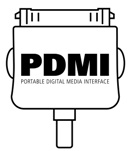 As part of an initiative to come up with a common standard for connecting portable digital audio and video devices to everything from home stereos to car entertainment systems, the Consumer Electronics Association's Mobile Electronics Committee is preparing to conduct a study of combining High-Definition Multimedia Interface (HDMI) signals with Portable Digital Media Interface (PDMI) connectors.
As part of an initiative to come up with a common standard for connecting portable digital audio and video devices to everything from home stereos to car entertainment systems, the Consumer Electronics Association's Mobile Electronics Committee is preparing to conduct a study of combining High-Definition Multimedia Interface (HDMI) signals with Portable Digital Media Interface (PDMI) connectors.
Although it's possible to avoid this with the ability to read MP3s from CD, this doesn't help if you keep the majority of your music on an iPod or similar device. It's about time we had a single standard to extend players' functionality to include digitally connecting to the existing consumer electronics insfrastructure.
















